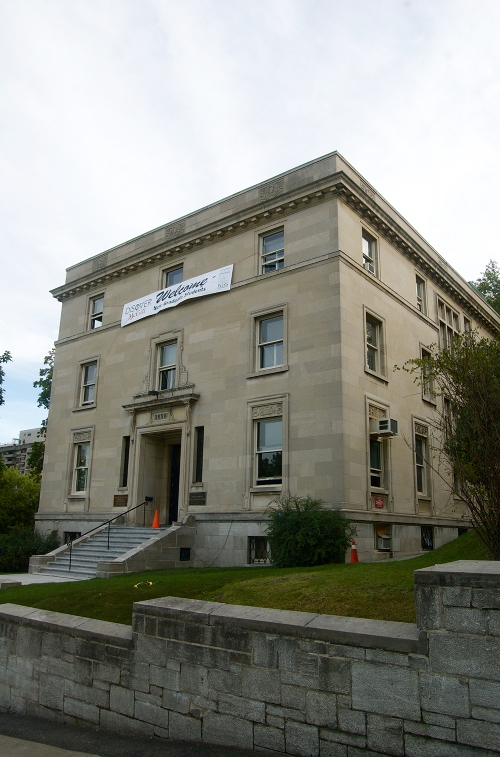Students typically understand education at McGill at two levels—graduate and undergraduate studies. However, not every faculty at McGill is as clear-cut as this system appears; in the Faculties of Law and Medicine, students are considered undergraduates even though most applicants have already completed an undergraduate degree.
Students in law and medicine are considered undergraduates across Canada and in much of the world, although students can also receive a graduate degree in either faculty by completing an additional degree.
Being an undergraduate in these faculties does not alter the daily life of students, according to executive President of the Medical Students’ Society (MSS) Carl White Ulysse.
“We are still treated a little differently from most undergraduates,” Ulysse said. “For example, we only pay 72 per cent of the SSMU fee as per article 1.2 of their constitution, and we have access to the Thomson House like ‘real’ graduate students. In the end, we will get the same degree.”
Marc Roy, vice-president academic of the Law Students’ Association (LSA), said the system of undergraduate classification can create discrepancies between the education levels of entering students, since Quebec students can apply directly from CEGEP.
“A significant part of the class each year is admitted from [CEGEP] applicants,” Roy said. “They go through a very similar application process to students with previous university study, but CEGEP applicants are at the same stage in their education as most students from Quebec entering other undergraduate degree programs.”
CEGEPs offer two-year programs between high school and university from which students can apply for admissions directly to the McGill School of Law and with reduced credit requirements for the School of Medicine.
However, undergraduate status can cause problems for some students in these faculties, especially those looking to work in positions similar to Teaching Assistants (TAs). Undergraduate students are not included in the definition of a TA set by the collective agreement between McGill and the Association of Graduate Students Employed at McGill (AGSEM).
“AGSEM was accredited in 1993 to represent graduate TAs, and our current TA Collective Agreement defines a TA as a current graduate student,” Justin Irwin, a delegate of AGSEM, said.
Irwin said this can be a harmful situation for both graduate and undergraduate students.
“Graduate students miss out on jobs and the pedagogical experience that goes with them, and undergraduates have no protections on the job,” he said. “The current situation allows McGill to hire non-unionized employees, both undergraduate students and graduate students, to do various teaching support work like grading. This work is often done for low and inconsistent pay without many of the rights unionized workers have, including paid pedagogical training.”
According to Irwin, AGSEM would like to expand to represent undergraduate students, to ensure that the current situation changes.
“We want to see fair rules that balance finding the best candidates with improving the quality of education, and that protect everyone doing teaching support work at McGill,” Irwin said
The Collective Agreement expires in June 2014.









